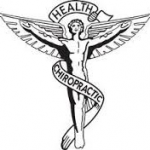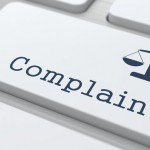 The Illinois Department of Financial and Professional Regulation (IDFPR) is responsible for reviewing license applications in 235 separate categories covered by 61 different professional license acts. It licenses and regulates over 1 million professionals and firms throughout Illinois. But those numbers may shrink significantly, professional licensing may no longer be required for many professions, and it may get easier to get licensed in other states depending on the outcome of a multi-state conference of regulators to be held in December.
The Illinois Department of Financial and Professional Regulation (IDFPR) is responsible for reviewing license applications in 235 separate categories covered by 61 different professional license acts. It licenses and regulates over 1 million professionals and firms throughout Illinois. But those numbers may shrink significantly, professional licensing may no longer be required for many professions, and it may get easier to get licensed in other states depending on the outcome of a multi-state conference of regulators to be held in December.
Should Tour Guides Need Licenses?
Illinois is one of 11 states participating in the Tucson, Arizona meeting, which was called to address what many consider to be the over-regulation of too many professions and occupations. According to the National Conference of State Legislatures (NCSL), which is a co-sponsor of the conference, the number of jobs requiring an occupational license, or government approval to practice a profession, has grown from about 1-in-20 to more than 1-in-4 over the past 60 years.
While no one takes issue with the need to license and regulate medical professionals, accountants, engineers, and the like, do tour guides really need to be licensed, as is actually required in some states (though not in Illinois)?
Economists and others have argued that professional licensing requirements for many occupations present unnecessary barriers that keep many people from entering those jobs while not significantly adding to consumer protection.
A 2015 study by the Brookings Institution found there were “far more cases” in which licensing reduced employment than ones where it improved the quality and safety of services. The restrictions have resulted in 2.8 million fewer jobs nationally and raised consumer costs by $203 billion annually, the study found.
Removing the Barriers to Moving
Additionally, since each state has their own licensing requirements and regulatory regimes, it can be exceedingly difficult and confusing when licensed professionals move to another state and want to continue their career. One state may require more hours of continuing education than another, for example, and simply transferring a license from one state to another can be an administrative nightmare.
The NCSL notes that that having to navigate 50 different licensing systems is particularly hard for military spouses and others who have to move frequently. At the conference, participants will attempt to find solutions that can bring uniformity and minimize the hurdles involved in relocating.
It remains to be seen what will come of this December conference. But there is no question that reforms to the professional licensing scheme here in Illinois and elsewhere would be a welcome development. Hopefully, Illinois regulators will address the unfairness of the professional license disciplinary process next.
Louis Fine: Chicago Professional License Defense Attorney
As a former Chief Prosecuting Attorney and administrative law judge for IDFPR, I have seen the serious consequences that an adverse enforcement decision can have on professionals who suddenly find their future in disarray. I understand how and why the Department decides to pursue investigations, how it handles negotiations, and how to approach formal proceedings in a way that gives my clients the best possible chance of a positive and expeditious outcome.
Please give me a call at (312) 236-2433 or fill out my online form to arrange for your free initial consultation. Together, we will get you back to your clients and your career.










